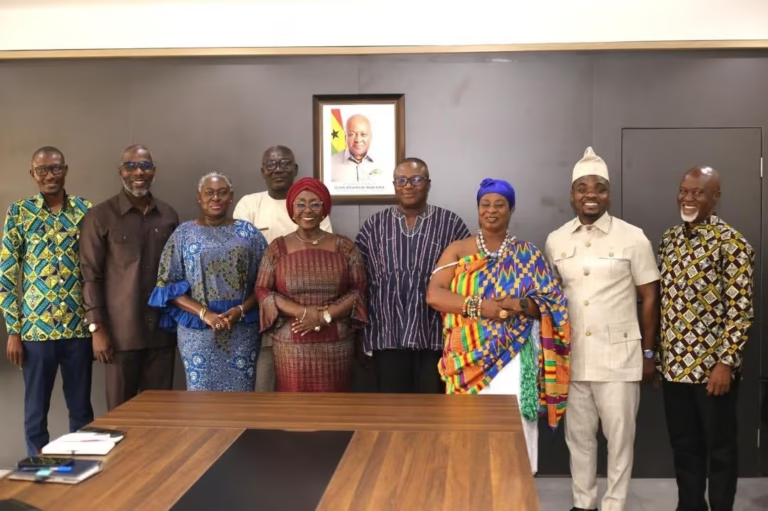Head of Public Events and Communications at Charterhouse Ghana, Robert Klah, has called for immediate structural reforms to the Ghana Music Rights Organization (GHAMRO), stressing that without a proper royalty system, Ghanaian musicians are being robbed of their lifetime earnings.
Speaking on Hitz FM on August 4, 2025, during a panel discussion on preserving the legacy of Ghanaian music legends, Klah passionately argued that the country’s tribute to its artistes should not be reserved solely for after their deaths.

“If, for any reason, we have not fixed the GHAMRO issue, we are depriving them of the right to earn,” he stated. “So, if you want to talk about honouring somebody’s legacy, it starts when the person is alive.”
Klah pointed out that a broken intellectual property (IP) and royalty payment framework in Ghana continues to hinder artistes from earning decent incomes from their own creations, leading to a cycle of poverty among veteran musicians.
“Everything about estate management, which concerns the financial aspect after someone passes, like managing their works, requires a functioning system,” he added. “If you haven’t fixed your IP framework, if you haven’t fixed the system to ensure they can earn, then there’s really nothing in terms of revenue coming through.”
Robert Klah also expressed frustration over the current state of GHAMRO’s royalty distribution, describing it as unfair and unstructured, especially for artistes who have made significant contributions to the music industry.
“This thing about royalties—no matter how we look at it—I just don’t like the way it’s being treated,” he lamented. “People have contributed their quota, and then they die poor. Does it make sense?”
Klah believes the conversation about preserving legacies must go beyond posthumous awards and memorials to creating a functional economic ecosystem for artistes while they are alive.
“You want to preserve their legacy? It starts with taking interest in ensuring that when they work and put out content, they are able to earn,” he stressed.

His comments come at a time when many stakeholders have raised concerns over GHAMRO’s operational inefficiencies, particularly in collecting and disbursing royalties to deserving rights holders.
The Ghanaian music industry, despite its rich heritage and global influence, continues to struggle with legal loopholes, poor IP enforcement, and weak institutional support—all of which make it difficult for musicians to monetize their craft effectively.
As conversations around musician welfare, legacy planning, and industry reform grow louder, Robert Klah’s remarks serve as a timely reminder that systemic change is not only necessary but long overdue.




